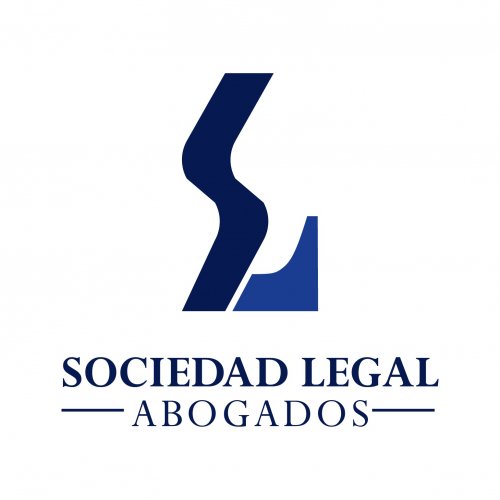Best Employment & Labor Lawyers in Ecuador
Share your needs with us, get contacted by law firms.
Free. Takes 2 min.
Or refine your search by selecting a city:
List of the best lawyers in Ecuador
About Employment & Labor Law in Ecuador
Employment and labor law in Ecuador form a critical part of the country's legal framework, shaping the relationship between employers and employees. These laws are designed to ensure fair treatment, protect workers' rights, and foster a healthy work environment. They establish regulations regarding work hours, minimum wage, occupational safety, worker's rights, and dispute resolution. The core principles governing employment and labor in Ecuador emphasize equality, non-discrimination, and the protection of workers, ensuring that all parties within the labor market are treated with respect and dignity.
Why You May Need a Lawyer
There are several situations where individuals or businesses might require legal assistance in the field of employment and labor in Ecuador. Here are some common scenarios:
- Conflict resolution regarding employment contracts, including disputes over terms and conditions.
- Unfair dismissal or wrongful termination cases where employees need to seek justice.
- Issues related to workplace discrimination or harassment that require mediation or legal intervention.
- Understanding and navigating changes in labor laws and regulations that affect existing business practices or employee rights.
- Assistance in drafting or reviewing employment contracts to ensure compliance with local laws.
- Legal support during labor inspections or audits conducted by governmental authorities.
Local Laws Overview
Here are some key aspects of employment and labor laws in Ecuador:
- Employment Contracts: These must be documented and clearly outline the terms and conditions of employment.
- Wages: Minimum wage levels are established by law and are regularly updated by the government.
- Work Hours: Standard working hours are limited to 40 hours per week, with overtime paid at a higher rate.
- Health and Safety: Employers are required to ensure safe working conditions and comply with occupational health standards.
- Leave Entitlements: Employees are entitled to annual leave, maternity leave, paternity leave, and other personal leaves.
- Termination of Employment: Rules around fair termination and severance pay are strictly regulated.
Frequently Asked Questions
1. What is the minimum wage in Ecuador?
The minimum wage in Ecuador is updated annually by the government and reflects the cost of living standards. Employers must adhere to this minimum salary.
2. How are overtime hours compensated?
Overtime work is compensated at a rate higher than the regular hourly wage, typically 50% more for extra hours during the weekdays, and up to 100% more on holidays and weekends.
3. What are my rights if I am dismissed without cause?
If dismissed without just cause, employees are entitled to compensation, which includes severance pay calculated based on the length of employment.
4. Are there regulations for maternity and paternity leave?
Yes, female employees are entitled to twelve weeks of paid maternity leave, while male employees are entitled to ten days of paternity leave.
5. What constitutes workplace discrimination in Ecuador?
Discrimination based on gender, age, ethnicity, disability, and other personal attributes is prohibited in Ecuador, and victims can seek legal recourse if they experience such discrimination.
6. How do I handle a workplace harassment issue?
If you are experiencing harassment at work, it's advisable to document incidents and seek legal advice. Employers are expected to maintain a harassment-free workplace.
7. Can I negotiate my employment contract?
Yes, employment contracts can be negotiated, but they must comply with Ecuadorian labor laws. It is wise to have legal counsel review the terms before signing.
8. Is it mandatory to receive a written employment contract?
Yes, having a written contract is necessary to ensure the terms of employment are legally recognized and enforceable.
9. What should I do in case of a workplace injury?
If you are injured at work, report it immediately to your employer and seek medical attention. The employer should cover medical expenses and provide necessary compensation.
10. Are there protections for whistleblowers in Ecuador?
Yes, individuals who report illegal activities or misconduct within their workplace are protected by law from retaliation.
Additional Resources
For further assistance and information, consider these resources and organizations:
- Ministerio de Trabajo (Ministry of Labour): Provides detailed information on employment laws and regulations.
- Inspección del Trabajo: The labor inspection office assists with compliance and enforcement of labor laws.
- Defensoría del Pueblo: Offers support for human rights issues, including workplace discrimination and harassment.
- Local Legal Aid Organizations: Offer free or low-cost legal assistance for those experiencing employment issues.
Next Steps
If you need legal assistance in employment and labor matters in Ecuador, consider the following steps:
- Gather all relevant documentation and evidence related to your employment issue.
- Consult with a qualified employment lawyer who has experience with Ecuadorian labor law.
- Explore free or subsidized legal aid options if you cannot afford private legal services.
- Contact relevant government agencies for guidance and to understand your rights and obligations.
- Engage in negotiations or mediation early to resolve disputes amicably, with your lawyer facilitating the discussions.
Lawzana helps you find the best lawyers and law firms in Ecuador through a curated and pre-screened list of qualified legal professionals. Our platform offers rankings and detailed profiles of attorneys and law firms, allowing you to compare based on practice areas, including Employment & Labor, experience, and client feedback.
Each profile includes a description of the firm's areas of practice, client reviews, team members and partners, year of establishment, spoken languages, office locations, contact information, social media presence, and any published articles or resources. Most firms on our platform speak English and are experienced in both local and international legal matters.
Get a quote from top-rated law firms in Ecuador — quickly, securely, and without unnecessary hassle.
Disclaimer:
The information provided on this page is for general informational purposes only and does not constitute legal advice. While we strive to ensure the accuracy and relevance of the content, legal information may change over time, and interpretations of the law can vary. You should always consult with a qualified legal professional for advice specific to your situation.
We disclaim all liability for actions taken or not taken based on the content of this page. If you believe any information is incorrect or outdated, please contact us, and we will review and update it where appropriate.
Browse employment & labor law firms by service in Ecuador
Ecuador Attorneys in related practice areas.
Browse employment & labor law firms by city in Ecuador
Refine your search by selecting a city.














